
-
Find the right food for your petTake this quiz to see which food may be the best for your furry friend.Find the right food for your petTake this quiz to see which food may be the best for your furry friend.Featured products
 Perfect Digestion Small & Mini Adult Dog Food
Perfect Digestion Small & Mini Adult Dog FoodHill's Science Plan Perfect Digestion Small & Mini Adult Dog Food with Turkey is a complete premium pet food for small breed adult dogs aged 1–6 years. This deliciously smooth mousse is precisely balanced to deliver the appropriate amount of energy and to support digestive health in adult, small breed dogs.
Shop Now Hypoallergenic Small & Mini Adult Dog Food
Hypoallergenic Small & Mini Adult Dog FoodHILL'S SCIENCE PLAN Hypoallergenic Small&Mini Adult dog food with Salmon is complete pet food for adult small dogs 1–6 years old. It's formulated for dogs with delicate skin and stomach, with limited high quality novel protein sources & no grain.
Shop Now Perfect Weight Small & Mini Adult Dog Food
Perfect Weight Small & Mini Adult Dog FoodHill's Science Plan Adult Small & Mini Dog Food with Turkey is a complete premium pet food for adult small dogs from 1 year old that are prone to weight gain or slightly overweight. This deliciously smooth mousse is formulated to deliver the appropriate amount of energy to support weight maintenance in adult dogs.
Shop NowFeatured products Sterilised Mature Adult Cat Food
Sterilised Mature Adult Cat FoodHill's Science Plan Sterilised Cat Mature Adult Cat Food with Chicken is specially formulated with ActivBiome+ Multi-Benefit Technology. It is a precisely balanced nutrition tailored to meet the needs of mature adult sterilised cats, ages 7+, and to promote graceful ageing.
Shop Now Oral Care Adult Cat Food
Oral Care Adult Cat FoodHill's Science Plan Oral Care Adult Cat Food with Chicken contains clinically proven kibble technology to reduce plaque & tartar build up.
Shop Now Urinary Health Adult Cat Food with Chicken
Urinary Health Adult Cat Food with ChickenHill's Science Plan Urinary Health Adult Cat Food with Chicken supports the health of the whole urinary system. Suitable for sterilised cats.
Shop Now -
Dog
- Dog Tips & Articles
-
Health Category
- Weight
- Food & Environmental Sensitivities
- Urinary
- Digestive
- Joint
- Kidney
-
Life Stage
- Puppy Nutrition
- Adult Nutrition
- Senior Nutrition
Cat- Cat Tips & Articles
-
Health Category
- Weight
- Skin & Food Sensitivities
- Urinary
- Digestive
- Kidney
-
Life Stage
- Kitten Nutrition
- Adult Nutrition
Featured articles Tips For Mixing Wet And Dry Pet Food
Tips For Mixing Wet And Dry Pet FoodDiscover tips for mixing wet and dry pet food to ensure balanced nutrition and variety for your pet. For comprehensive feeding advice, visit Hill's Pet UK.
Read More Virtual Vet Visits: What You Need to Know
Virtual Vet Visits: What You Need to KnowLearn the ins and outs of a televet appointment before you talk to a vet online.
Read More Develop your gut instinct | Hill's Pet
Develop your gut instinct | Hill's PetDigestive disorders can affect any part of the digestive system, from the stomach, small intestine and through to the large intestine.
Read More -


Can cats have Down Syndrome? Veterinarians hear this question more often than you might think. People typically ask it when their cat seems to look and behave abnormally, in a manner that resembles Down Syndrome.
Cats with unusual facial features and certain behavioural abnormalities have become popular in social media circles. Claiming they have a "Down Syndrome cat," some pet parents created social media accounts for them, thereby advancing the belief that Down Syndrome can occur in cats.
Can Cats Have Down Syndrome?
Internet buzz notwithstanding, cats don't develop Down Syndrome. In fact, they can't.
First, a bit about Down Syndrome: In the UK, about 750 babies are born with Down's syndrome every year and there are an estimated 40,000 people in the country living with the condition says the BBC News. It occurs when the developing fetus's genetic material is copied incorrectly, resulting in an extra chromosome 21 (or a partial chromosome 21). This condition is also called trisomy 21.
Essentially, chromosomes organise the DNA in each cell into bundles, helping cells to pass on this genetic material when they divide. An extra chromosome 21 (or partial chromosome 21) causes a variety of birth defects that give people with Down Syndrome their shared physical traits.
According to the National Down Syndrome Society, people with Down Syndrome tend to share some or all of the following traits:
- Low muscle tone
- Small stature
- An upward slant to the eyes
- A single, deep crease across the centre of the palm
It's important to note that people with Down Syndrome do not all look the same.
Why Down Syndrome Cats Don't Exist
Humans have 23 chromosomes. Cats have 19. As such, having an extra chromosome 21 is clearly impossible for cats. But that doesn't mean cats can't occasionally have extra chromosomes.
In fact, a 1975 paper published in the American Journal of Veterinary Research identified a rare chromosomal abnormality in male cats that allows for one extra chromosome, resulting in a condition similar to Klinefelter syndrome in humans. These cats are especially noteworthy because the extra chromosome carries genetic material that affects their colouration. This condition causes these male cats to be tricoloured ("calico" or "tortoise-shell"), a colour pattern normally only seen in female cats.


Tasty Tips
Abnormalities That May Resemble Those of Down Syndrome
There have been some particularly noteworthy cats on Instagram that became internet sensations after their parents claimed that their cats owe their unusual appearances to extra chromosomes. It's unclear, however, whether these claims of chromosomal disease have ever been verified through genetic testing.
Despite the questionable claims and biological realities, "feline Down Syndrome" has become a popular term. It is important to note, however, that the veterinary community does not recognise feline Down Syndrome as a veterinary condition and, furthermore, does not advocate the transference of human conditions to animals on the basis of physical appearance or behaviour. To do so may be construed as disrespectful to people who live with these conditions.
Nonetheless, there are some physical and behavioural traits that may lead well-meaning people to mistakenly assign human conditions to cats. A so-called "Down Syndrome cat" typically manifests some distinctive characteristics, including:
- Broad noses
- Upturned eyes (which may be set widely apart)
- Small or unusual ears
- Low muscle tone
- Difficulty walking
- Difficulty with elimination (urination or defecation)
- Hearing or vision loss
- Heart problems
Cats With Physical and Behavioural Abnormalities
The physical features and behavioural abnormalities of so-called "Down Syndrome cats" are indicative of some other condition, one which may not even be genetic in origin.
The appearance and behaviour of these cats may stem from a wide variety of problems, including infections, neurological diseases, congenital abnormalities and even trauma. Cats infected in utero with the panleukopenia virus can develop several of the relevant physical and behavioural abnormalities. Further, some cats have cerebellar hypoplasia, a condition that can cause some of the behaviours and traits of these "Down Syndrome cats."
Cats whose mothers were exposed to certain toxins can suffer various congenital malformations affecting facial structure and the neurological system. What's more, trauma to the head and face, especially at a very young age, can cause permanent neurological damage and facial injuries that may appear to have been present since birth.
Expectations for Special Needs Cats
If your cat exhibits some behavioural and physical abnormalities, then they may be what is typically called a "special needs cat." Special needs cats often display many traits that might resemble, to the casual observer, those associated with Down Syndrome, even though cats cannot actually develop the condition.
Special needs cats require special care. Their pet parents must take extra care to protect them from the hazards of, for example, pools and stairs, as well as from predators and other dangers to which they're vulnerable. They may need help performing basic functions (cleaning themselves, eating and drinking, etc.) or navigating life with vision or hearing loss.
Whatever you do, be sure to enlist your veterinarian as an ally. Anyone whose cat requires special care should learn about the full range of healthcare options.


Dr. Patty Khuly is an award-winning veterinarian known for her independent thinking, her spirited pet advocacy, her passion for the veterinary profession, and her famously irreverent pet health writing.
Dr. K is an honors graduate of both Wellesley College and the University of Pennsylvania School of Veterinary Medicine. She received her MBA at The Wharton School of Business as part of the prestigious VMD/MBA dual-degree program. She now owns Sunset Animal Clinic, a veterinary practice in Miami, Florida.
Related products

Hill's Science Plan Oral Care Adult Cat Food with Chicken contains clinically proven kibble technology to reduce plaque & tartar build up.
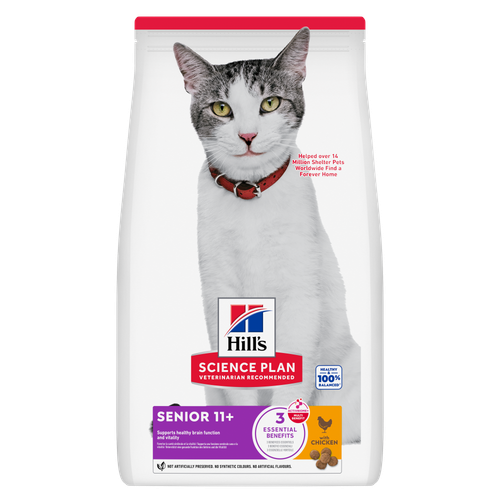
Hill's Science Plan Senior Cat Food with Chicken is a complete pet food, specially formulated with ActivBiome+ Multi-Benefit Technology.
This food supports healthy aging during the golden years. Contains a special ingredient blend to help keep older cats agile, more alert & interactive.

Hill's Science Plan Sterilised Cat Mature Adult Cat Food with Chicken is specially formulated with ActivBiome+ Multi-Benefit Technology. It is a precisely balanced nutrition tailored to meet the needs of mature adult sterilised cats, ages 7+, and to promote graceful ageing.

Hill's Science Plan Urinary Health Adult Cat Food with Chicken supports the health of the whole urinary system. Suitable for sterilised cats.
Related articles
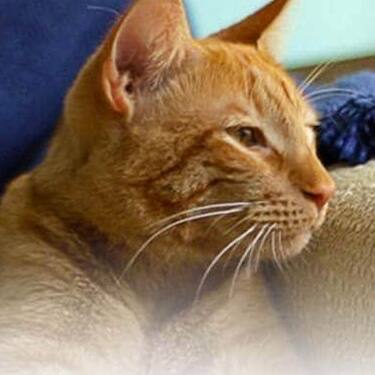
Find the right Hill
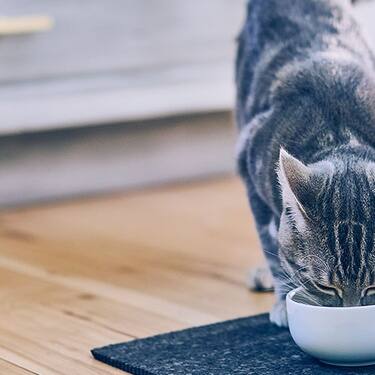
Good nutrition is about the right balance of nutrients. Learn more about health issues when feeding a cat food that has an improper nutritional balance from your friends at Hills Pet Nutrition.
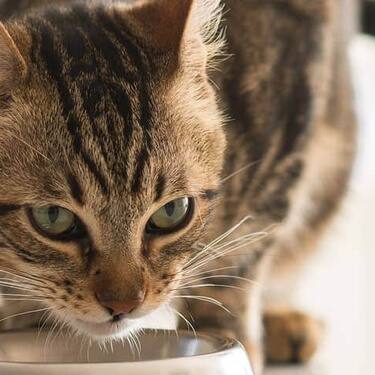
Discover what you can do to spot and support a sensitive cat stomach. See what routines and food you can implement to help your cat be happy and healthy.
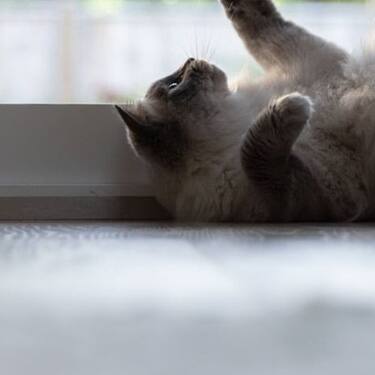
Feeding time can be a wonderful bonding opportunity for you and your cat. Find out how to make the most of it and create a healthy habit with HIll's Pet UK.

Put your cat on a diet without them knowing
Our low calorie formula helps you control your cat's weight. It's packed with high-quality protein for building lean muscles, and made with purposeful ingredients for a flavourful, nutritious meal. Clinically proven antioxidants, Vitamin C+E, help promote a healthy immune system.
Put your cat on a diet without them knowing
Our low calorie formula helps you control your cat's weight. It's packed with high-quality protein for building lean muscles, and made with purposeful ingredients for a flavourful, nutritious meal. Clinically proven antioxidants, Vitamin C+E, help promote a healthy immune system.

